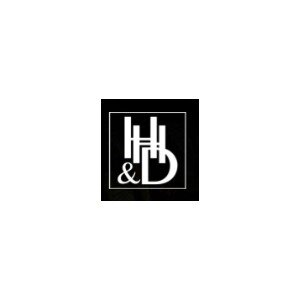Best Education Law Lawyers in Dominica
Share your needs with us, get contacted by law firms.
Free. Takes 2 min.
Or refine your search by selecting a city:
List of the best lawyers in Dominica
About Education Law in Dominica
Education Law in Dominica encompasses the legal issues related to the education system in the country, including regulations and policies governing public and private educational institutions. The Ministry of Education and Human Resource Development is responsible for maintaining and enhancing the quality of education nationwide. Education Law covers a range of topics such as students' rights, educational standards, teachers’ qualifications, and the operational guidelines for educational institutions.
Why You May Need a Lawyer
There are various scenarios in which individuals or institutions might require legal assistance within the realm of Education Law in Dominica. Common situations include:
- Disputes between parents and schools regarding student rights and accommodations.
- Issues related to educational malpractice or negligence.
- Employment disputes involving teachers or educational staff.
- Compliance with local education regulations for starting or maintaining a private educational institution.
- Legal concerns about discrimination or harassment within the educational environment.
Local Laws Overview
Dominica's education system is primarily governed by the Education Act (1997), which outlines the structure, rights, and responsibilities associated with education in the country. Key aspects include:
- Mandatory education for children between the ages of 5 and 16.
- The rights of students, including the right to a safe and non-discriminatory learning environment.
- Standards for teacher qualifications and their professional conduct.
- Guidelines for the establishment and management of private educational institutions.
- Policies regarding special education and the integration of students with disabilities into mainstream schools.
Frequently Asked Questions
What rights do students have in Dominica?
Students in Dominica have the right to access quality education in a safe, non-discriminatory environment. They also have the right to be free from any form of abuse or harassment.
When is education compulsory in Dominica?
Education is compulsory for children aged 5 to 16. This ensures that all children receive primary and secondary education to enhance their literacy and employment prospects.
Can parents choose schools for their children?
Yes, parents can choose between public and private schools for their children, depending on their preference and financial capability.
What are the requirements for opening a private school in Dominica?
To open a private school, one must comply with the Education Act, which includes requirements for registration with the Ministry of Education, adherence to educational standards, and health and safety regulations.
How are teachers' qualifications regulated?
Teachers must meet specific qualifications and licensing criteria set out by the Ministry of Education, which ensures they are fit for their professional roles in various educational settings.
What legal protections are in place for students with disabilities?
Students with disabilities are entitled to appropriate accommodations and are often integrated into mainstream classrooms to the greatest extent possible, following specific regulations and support services.
How are educational disputes resolved?
Educational disputes may be resolved through mediation by the Ministry of Education, legal actions, or seeking advice and representation from a legal professional specializing in Education Law.
Is homeschooling legal in Dominica?
Yes, homeschooling is an option in Dominica under certain conditions and must comply with regulations set by the Ministry of Education to ensure that the educational standards are met.
What can I do if I believe my child's rights are being violated at school?
If you believe your child’s rights are being violated, consider addressing the issue with school authorities first. If unresolved, seek guidance from the Ministry of Education or legal counsel specializing in Education Law.
Are there special provisions for early childhood education?
Yes, Dominica emphasizes early childhood education, which is supported and regulated to ensure young children receive quality foundational learning experiences.
Additional Resources
For more information and assistance, consider reaching out to the following:
- The Ministry of Education and Human Resource Development: The primary governmental body overseeing education.
- The Dominica Association of Teachers: Provides support and advocacy for educators.
- Legal practitioners specializing in Education Law for personalized legal advice and representation.
Next Steps
If you require legal assistance in Education Law, consider the following steps:
- Assess the specific legal issue or concern you are facing.
- Gather documentation and evidence relevant to your case or issue.
- Contact a lawyer who specializes in Education Law in Dominica for a consultation.
- Explore mediation or alternative dispute resolution options if appropriate.
- Stay informed about your rights and the legal processes involved.
Lawzana helps you find the best lawyers and law firms in Dominica through a curated and pre-screened list of qualified legal professionals. Our platform offers rankings and detailed profiles of attorneys and law firms, allowing you to compare based on practice areas, including Education Law, experience, and client feedback.
Each profile includes a description of the firm's areas of practice, client reviews, team members and partners, year of establishment, spoken languages, office locations, contact information, social media presence, and any published articles or resources. Most firms on our platform speak English and are experienced in both local and international legal matters.
Get a quote from top-rated law firms in Dominica — quickly, securely, and without unnecessary hassle.
Disclaimer:
The information provided on this page is for general informational purposes only and does not constitute legal advice. While we strive to ensure the accuracy and relevance of the content, legal information may change over time, and interpretations of the law can vary. You should always consult with a qualified legal professional for advice specific to your situation.
We disclaim all liability for actions taken or not taken based on the content of this page. If you believe any information is incorrect or outdated, please contact us, and we will review and update it where appropriate.
Browse education law law firms by city in Dominica
Refine your search by selecting a city.








